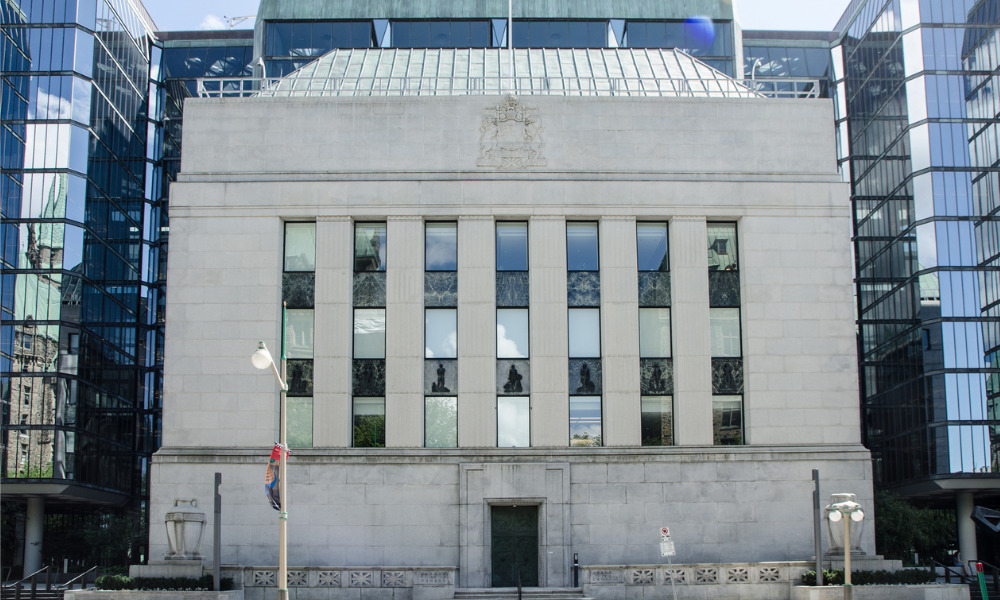The central bank will almost certainly follow the US Fed's lead with a massive rate increase this month

Inflation expectations in the mid- to long-term could become “unhinged”, making it much more difficult to bring inflation back to target, according to the Bank of Canada.
This is because the current inflation trend is building a very strong case for the BoC to keep its course when it comes to interest rate hikes, RBC Economics said.
“Moving rates higher from still-low levels currently is an easy call to make … only further [raising] the odds that the central bank will follow the US Fed with at least a 75-basis-point hike in July,” RBC said in its analysis.
Canadian inflation is seeing its highest annual levels in decades, reaching 6.8% in April and 7.7% in May. This is being inflamed by unprecedented price surges across multiple commodity classes.
“We expect growth to slow more significantly as the year progresses as high inflation and rising borrowing costs bite more into households’ spending power,” RBC said in a separate analysis.
Read more: Analyst: North American economic trends warring between resilience and recession
Despite these headwinds, businesses remained generally confident of Canada’s prospects – which could give a measure of robustness to the national economy.
“Most businesses still expect current inflation pressures to ease beyond the next two-three years with higher interest rates, improved supply chains, and the end of the conflict in the Ukraine cited as some of the more important drivers,” RBC said.
However, a growing number of businesses are anticipating inflation will stay significantly above the BoC’s 2% price target beyond the next three years.
“Businesses continue to invest more in equipment to help boost the productivity of a scarce workforce,” RBC said. “Businesses continue to plan to hire more, and expect to pay more to do so.”
Expected wage growth over the next year is now at 5.8%, up from 5.2% in Q1 and from 4% a year ago.



